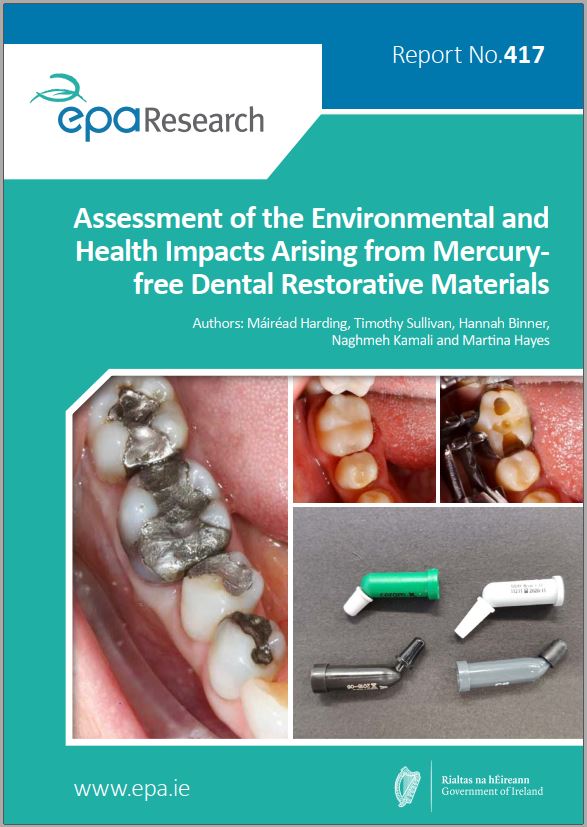
Authors: Máiréad Harding, Timothy Sullivan, Hannah Binner, Naghmeh Kamali and Martina Hayes, July 2022
Year: 2022
The United Nations Minamata Convention on Mercury is an international regulatory framework that aims to protect human health and the global environment from the harmful effects of mercury. This research identified that very little literature exists on the environmental and health impacts of mercury-free dental restorative materials. It identified small particles from the mercury-free dental restorative materials in dental wastewater (DWW) and says it is essential to consider enhanced capture of small particles from DWW as a priority.
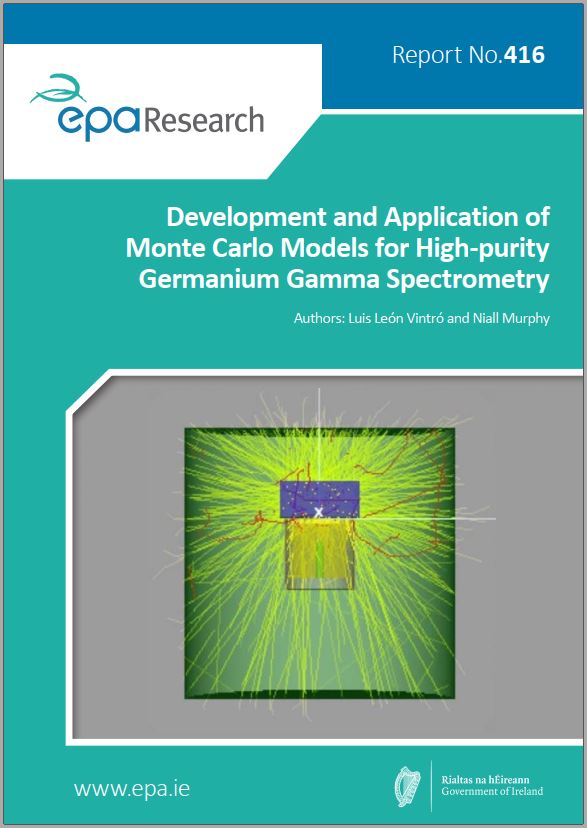
Authors: Luis León Vintró and Niall Murphy, July 2022
Year: 2022
The aim of this research project was to develop and implement suitable Monte Carlo calibration methods for the assay of natural and artificial radionuclides using HPGe gamma spectrometers. A software application was developed as part of this project. The application makes use of a set of nominal input parameters describing an HPGe detector, together with experimentally determined full-energy peak efficiencies for a range of radionuclides in a variety of counting geometries, to produce an optimised model of the detector by applying suitable optimisation algorithms without any further user intervention.
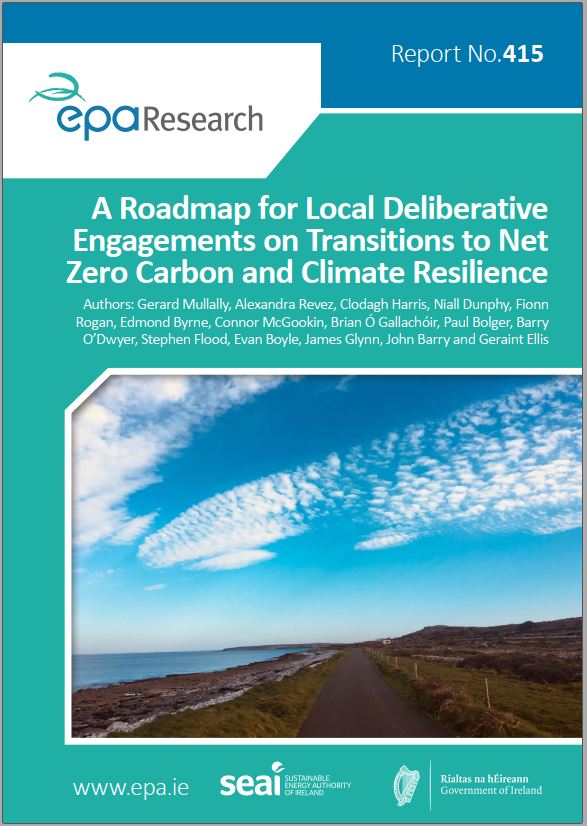
Authors: Gerard Mullally, Alexandra Revez, Clodagh Harris, Niall Dunphy, Fionn Rogan, Edmond Byrne, Connor McGookin, Brian Ó Gallachóir, Paul Bolger, Barry O’Dwyer, Stephen Flood, Evan Boyle, James Glynn, John Barry and Geraint Ellis , July 2022
Year: 2022
Ireland faces considerable challenges in transitioning to a net-zero carbon and climate resilient future. This research focused on the challenge of engaging citizens and communities in climate action while also recognising that new and novel approaches are required to enable the transition to climate resilience. The co-creation of the Deliberative Futures Toolkit together with local, scientific and policy communities, provides a resource that can be used by communities and policymakers.
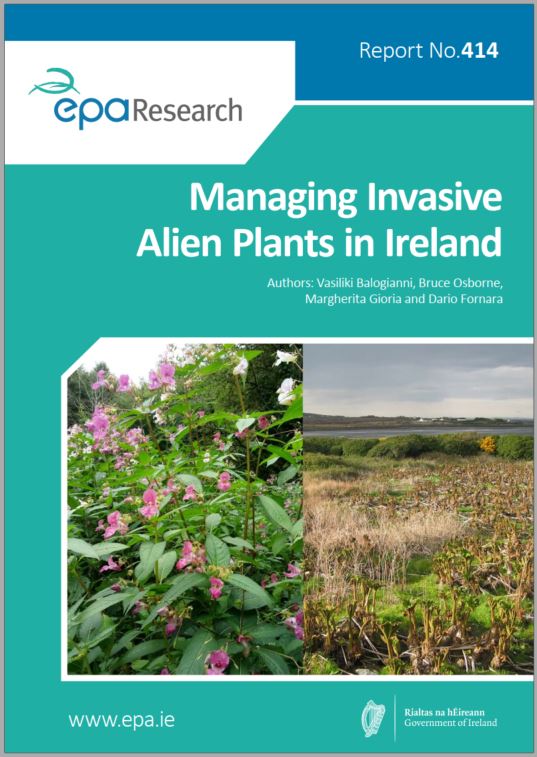
Authors: Vasiliki Balogianni, Bruce Osborne, Margherita Gioria and Dario Fornara, July 2022
Year: 2022
The presence of invasive alien plant species across Ireland and Europe has increased significantly in the past few decades. The impacts of these invasions vary but they can lead to major modifications in ecosystem functioning. This research project has broadened our understanding of the ecological traits, strategies and impacts of invasive species. This information can be used in the management of invasive plants and help to inform legislation that might need to be introduced or strengthened.
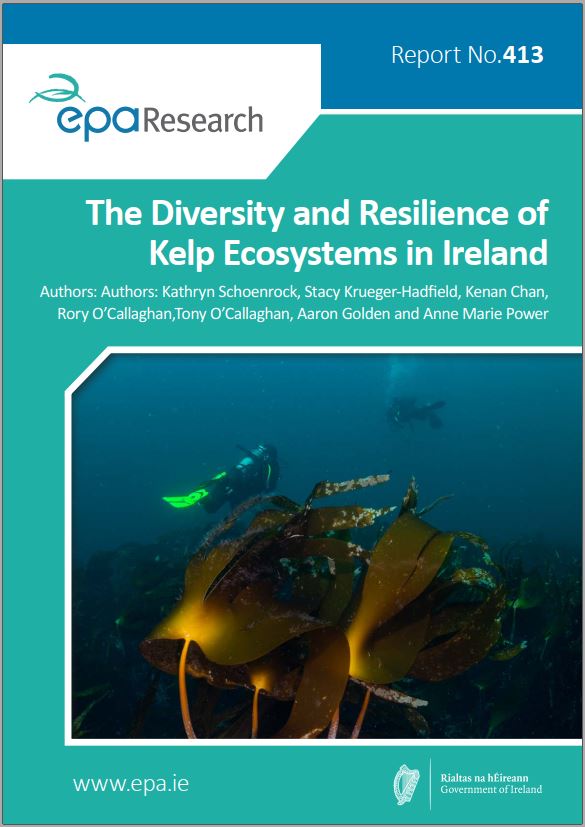
Authors: Kathryn Schoenrock, Stacy Krueger-Hadfield, Kenan Chan, Rory O’Callaghan, Tony O’Callaghan, Aaron Golden and Anne Marie Power, July 2022
Year: 2022
In Ireland, Kelp forests can be found along rocky shorelines and dominates rocky substrata along the Irish coastline (approximately 3010 km out of the 7524 km of national shoreline). The report makes recommendations concerning monitoring and preserving kelp ecosystems nationwide. A range of resilience metrics was assessed for subtidal kelp forests in Ireland to better understand how to monitor, manage and simply understand these systems and their potential responses to climate shifts in nearshore ecosystems.
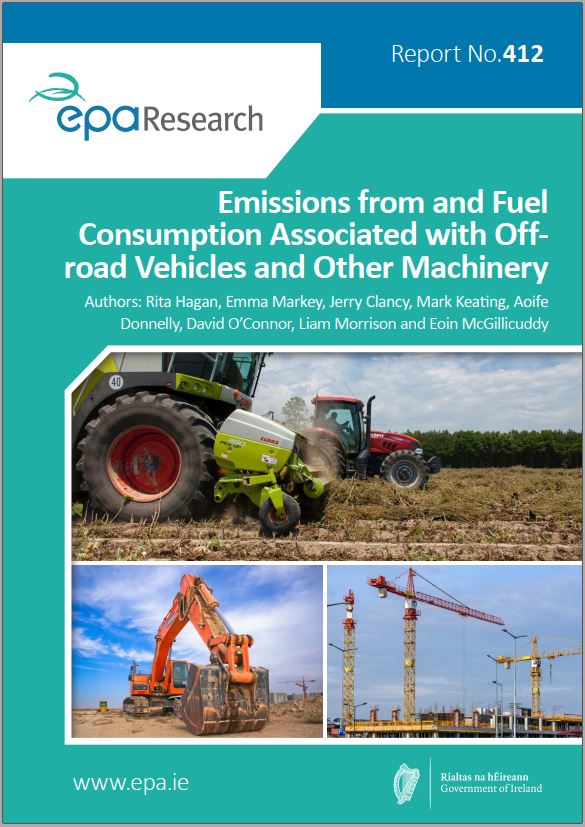
Authors: Rita Hagan, Emma Markey, Jerry Clancy, Mark Keating, Aoife Donnelly, David O’Connor, Liam Morrison and Eoin McGillicuddy, July 2022
Year: 2022
Non-road mobile machinery (NRMM) is a large category that until recently had not been widely researched in terms of its contribution of exhaust emissions to overall air pollution. The emissions from NRMM contribute significantly to air pollution. To lower emissions from NRMM and improve air quality, it is recommended that more data are collected from sectors such as rail, construction, and aviation, and from Transport Infrastructure Ireland. This research used the bottom-up approach of contacting NRMM owners and data holders to request data about their NRMM fleet and its fuel use.
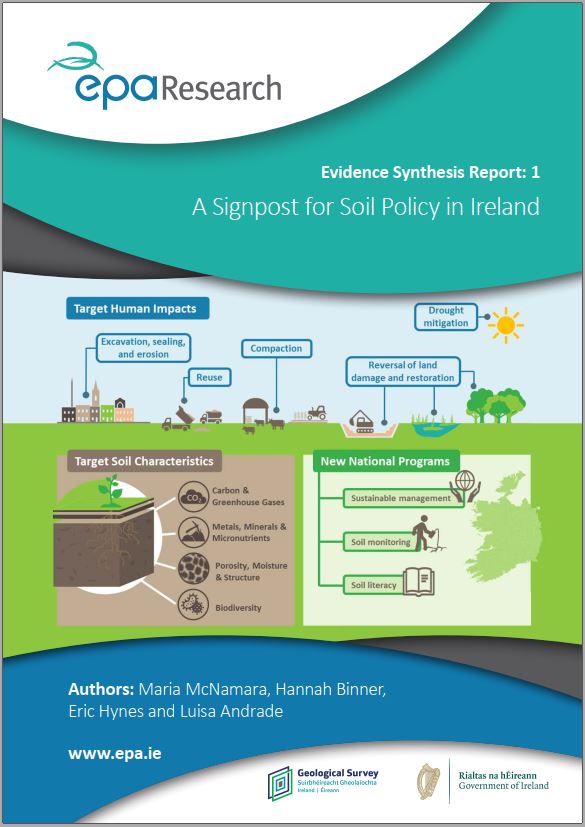
Authors: Maria McNamara, Hannah Binner, Eric Hynes and Luisa Andrade, June 2022
Year: 2022
This study aimed to generate an accessible evidence base to support the development of new policy on soil and to enable Ireland to meet its commitments to both national and EU soil strategies.
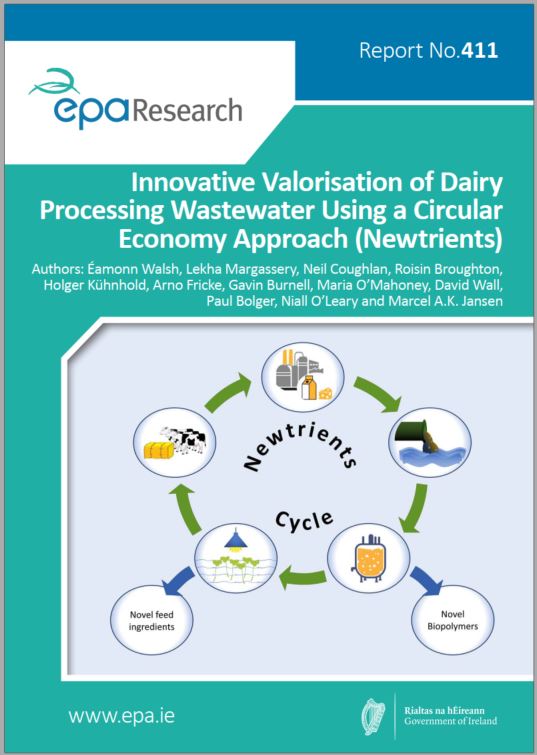
Authors: Éamonn Walsh, Lekha Margassery, Neil Coughlan, Roisin Broughton, Holger Kühnhold, Arno Fricke, Gavin Burnell, Maria O’Mahoney, David Wall, Paul Bolger, Niall O’Leary and Marcel A.K. Jansen, June 2022
Year: 2022
There are pressing economic and environmental concerns regarding the imbalance between resource consumption and regeneration. This research successfully demonstrated a paradigm shift in how wastewater is treated by developing a pioneering cascading system for valorisation of dairy wastewater, based on circular economy principles. It successfully developed an integrated system coupling microbial-based technologies of anaerobic digestion and aerobic dynamic feeding with duckweed cultivation.
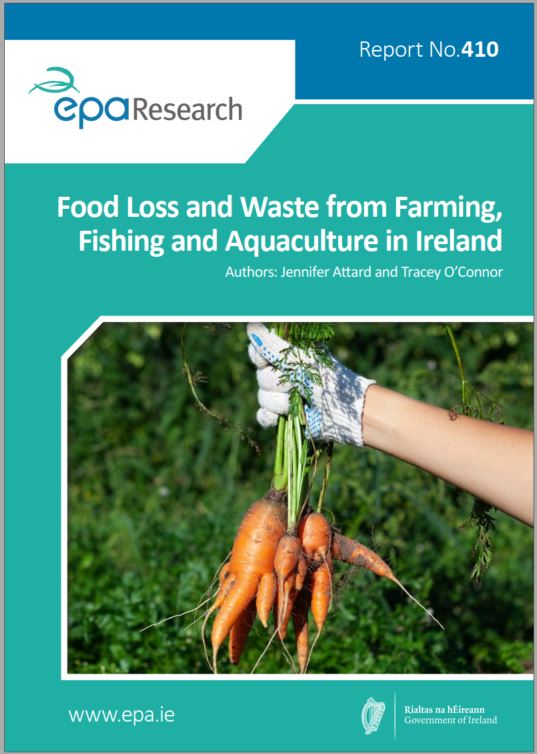
Authors: Jennifer Attard and Tracey O’Connor, June 2022
Year: 2022
Food waste in Ireland has been estimated at 1.1 million tonnes per year, but this excluded farming, fishing and aquaculture (i.e. primary production), as there were no data on these sectors. This research has quantified and understood food waste in primary production and is a starting point in identifying areas that need addressing. The project has compiled various options for solutions available to tackle the specific food waste issues occurring in Ireland.
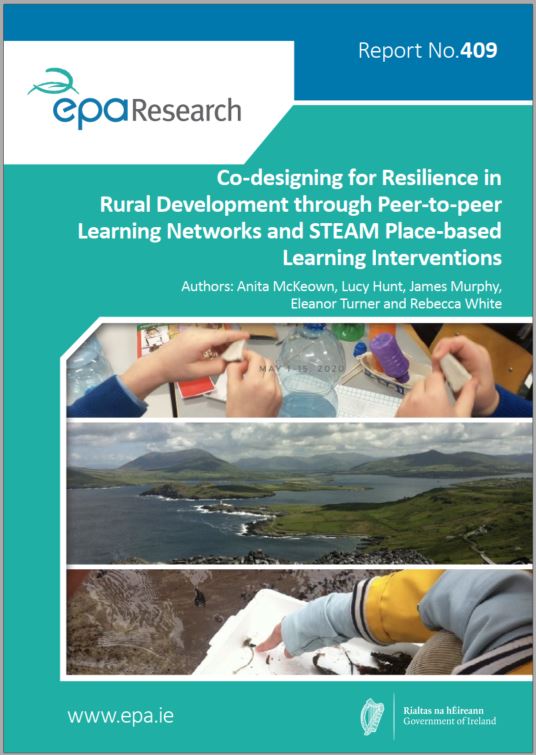
Authors: Anita McKeown, Lucy Hunt, James Murphy, Eleanor Turner and Rebecca White, May 2022
Year: 2022
The United Nations 17 Sustainable Development Goals (SDGs) and the 2030 Agenda for Sustainable Development require governments to take ownership and establish frameworks for the achievement of the 17 global goals. Ireland has mapped existing policies and programmes against each of the 169 SDG sub targets, setting out a roadmap for achieving the goals. CoDesRes developed and explored a series of proof-of-concept methods and from this created two toolkits. As interventions, the toolkits (community peer-to-peer learning and place-based STEAM education) localise the implementation of the SDGs and offer insights into adaptive opportunities to engage the public.
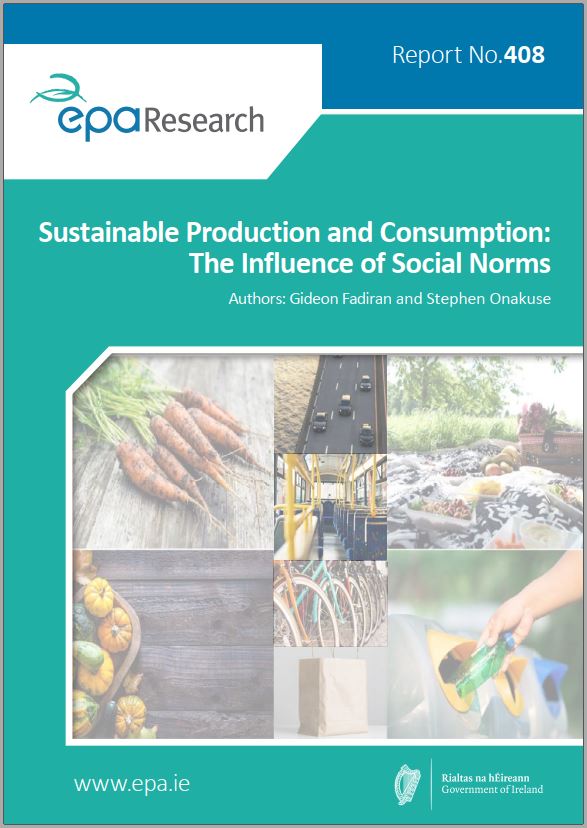
Authors: Gideon Fadiran and Stephen Onakuse, May 2022
Year: 2022
Consumer behaviour represents acts or decisions that influence the direction of production and consumption activities, which are, in turn, driven by household and, ultimately, economic activities. This research investigated the linkages between habits and norms that drive behavioural attitudes and preferences, and how consumers’ socio-economic background, community, beliefs, etc. are identified as the driving factors of consumer behaviour and waste patterns.
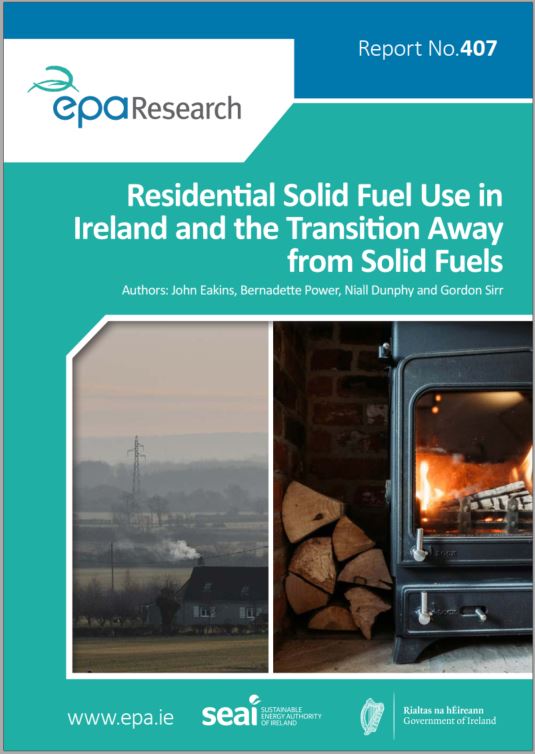
Authors: John Eakins, Bernadette Power, Niall Dunphy and Gordon Sirr, April 2022
Year: 2022
The EPA has highlighted air quality issues in urban centres in Ireland in recent years. Emissions of fine particulate matter (PM2.5), attributable to the burning of solid fuels, such as coal, peat and wood, are a particular cause of concern. This research project aims to provide a deeper understanding of the sector using existing and new sources of data on solid fuel use. The development of a new data set based on a survey of household heating and fuel use will be the primary contribution.
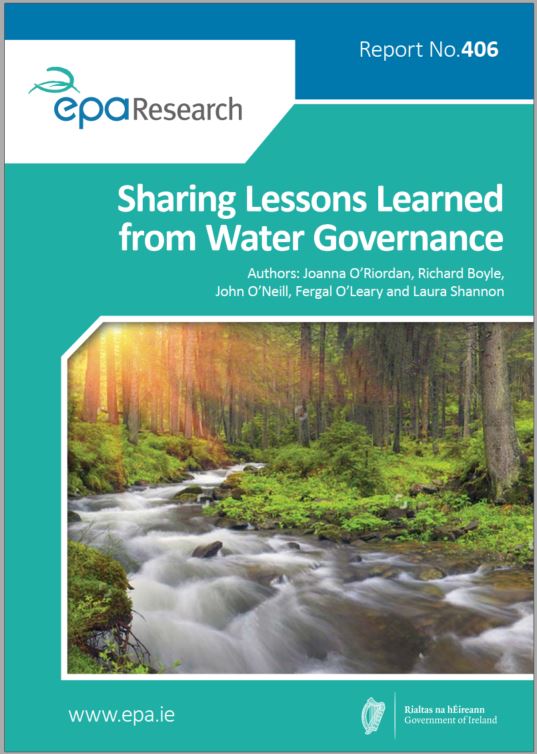
Authors: Joanna O’Riordan, Richard Boyle, John O’Neill, Fergal O’Leary and Laura Shannon, March 2022
Year: 2022
Clean, healthy water is essential for our economy, our aquatic wildlife and our health and wellbeing. However, as noted in the draft third-cycle River Basin Management Plan (Department of Housing, Local Government and Heritage, 2021), there are mounting environmental pressures on Ireland’s waters with the situation described as ‘’urgent’’. The objective of this research was to review changes in structures and processes made under the second-cycle River Basin Management Plan, 2018–2021, to inform thinking regarding the third-cycle River Basin Management Plan, 2022–2027.
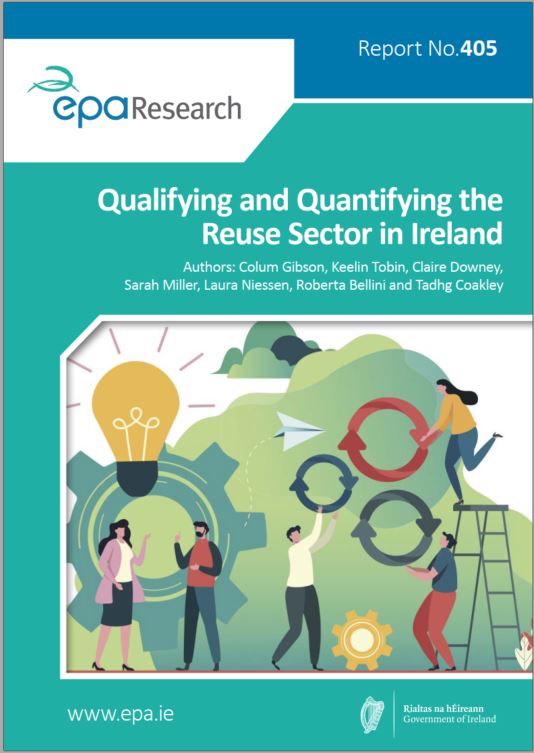
Authors: Colum Gibson, Keelin Tobin, Claire Downey, Sarah Miller, Laura Niessen, Roberta Bellini and Tadhg Coakley, March 2022
Year: 2022
Recent EU legislation aims to strengthen reuse in all Member States and asks Member States to measure reuse, with the option of setting national targets in the future. By gathering information on the scale and size of the reuse sector in Ireland, we can benchmark and compare our reuse sector against others. This study assessed the capability of the Irish reuse sector to supply the data necessary for quantifying the extent of reuse in Ireland and informing Irish policymakers on the steps required to support the sector to report in the future.
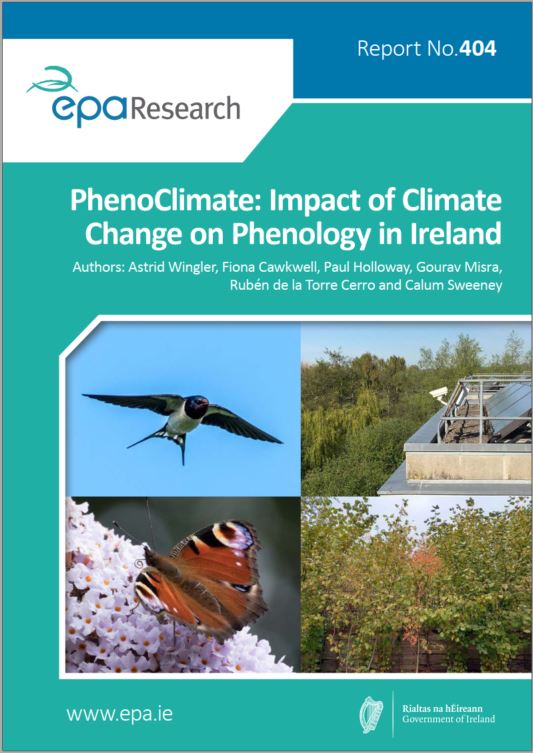
Authors: Astrid Wingler, Fiona Cawkwell, Paul Holloway, Gourav Misra, Rubén de la Torre Cerro and Calum Sweeney, March 2022
Year: 2022
The PhenoClimate project determined the impact of climate change on seasonal life cycle (phenological) events and the consequences for species interactions. For Irish woodlands, an advance of the growing season in spring was identified using satellite remote sensing. Arrival of migratory birds was found to advance too, however, instances in which migratory birds showed asynchrony with insect first flight dates were identified, suggesting that climate change can result in phenological mismatch.
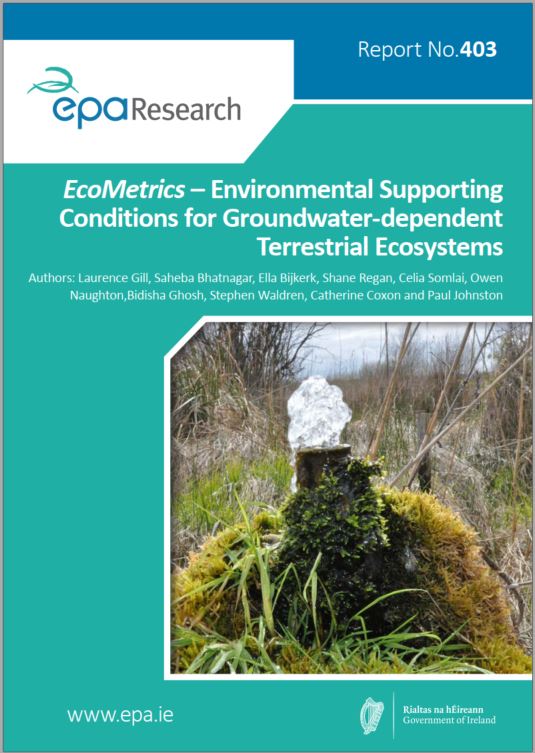
Authors: Laurence Gill, Saheba Bhatnagar, Ella Bijkerk, Shane Regan, Celia Somlai, Owen Naughton, Bidisha Ghosh, Stephen Waldren, Catherine Coxon and Paul Johnston, February 2022
Year: 2022
Wetlands provide important regulating ecosystem services, such as water purification, carbon capture and storage, and flood protection. They also provide rich habitats for biodiversity, including many protected species. This research project evaluated and developed methods for the assessment and definition of appropriate ecohydrological metrics to help policymakers conserve and/or restore wetlands, particularly with respect to meeting the objectives of the Water Framework Directive and Habitats Directive as applied to GWDTEs in Ireland.
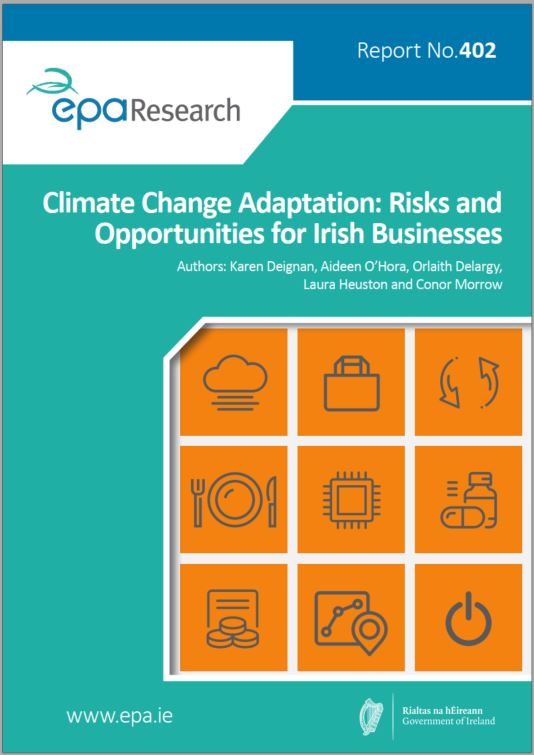
Authors: Karen Deignan, Aideen O’Hora, Orlaith Delargy, Laura Heuston and Conor Morrow, February 2022
Year: 2022
Climate change is already affecting Irish businesses and these impacts are likely to increase in severity. Our research identified material climate risks (pressures) for Ireland’s private sector. By raising awareness of climate risks and opportunities, this research can help the private sector identify and develop solutions to address the environmental and economic challenges that they face. This project can also inform the development of solutions to develop business-level (rather than sector-level) resilience and adaptation plans.
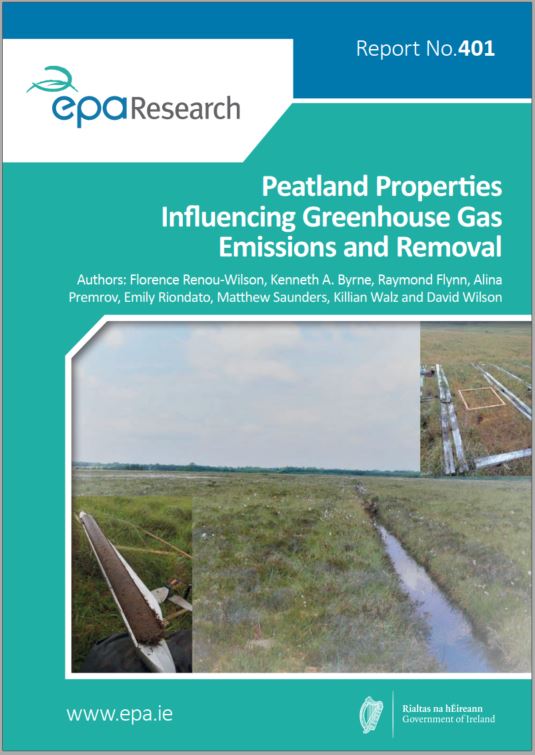
Authors: Florence Renou-Wilson, Kenneth A. Byrne, Raymond Flynn, Alina Premrov, Emily Riondato, Matthew Saunders, Killian Walz and David Wilson, January 2022
Year: 2022
Irish bogs have been drastically altered by human activities and the sampled peat properties reflect the nature and magnitude of the impact of land use and management. A recognition of the heterogeneity found across Irish peat soils, together with an understanding of the relationships between key soil properties, are critical for developing effective strategies to reduce the carbon footprint of these degraded ecosystems. Our findings clearly support the need for a site-by-site approach for rewetting management schemes.
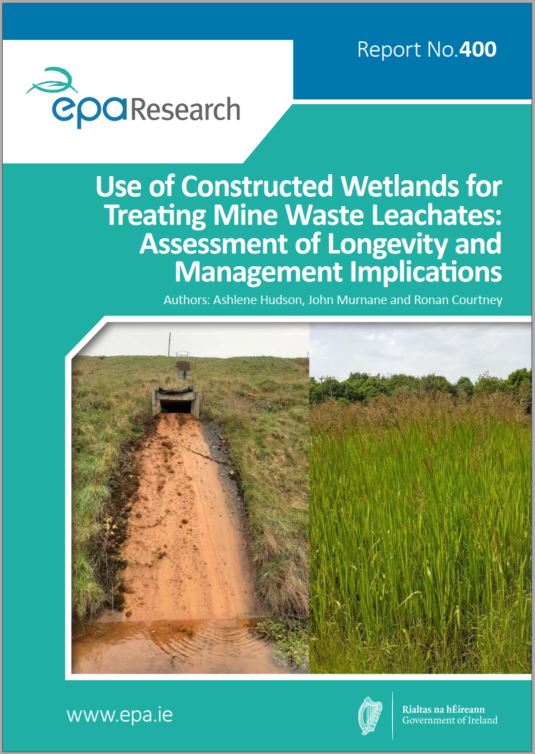
Authors: Ashlene Hudson, John Murnane and Ronan Courtney, December 2021
Year: 2021
Mine waste storage facilities can generate significant quantities of wastewaters and leachates with extreme pH and elevated metal contents. Modern mine waste (tailings) facilities operating under licence from the EPA have constructed wetlands as a component of their Integrated Pollution Control (IPC) licences. This study provides evidence of the effectiveness of constructed wetlands for treating mine waters from different settings over time frames of several years.
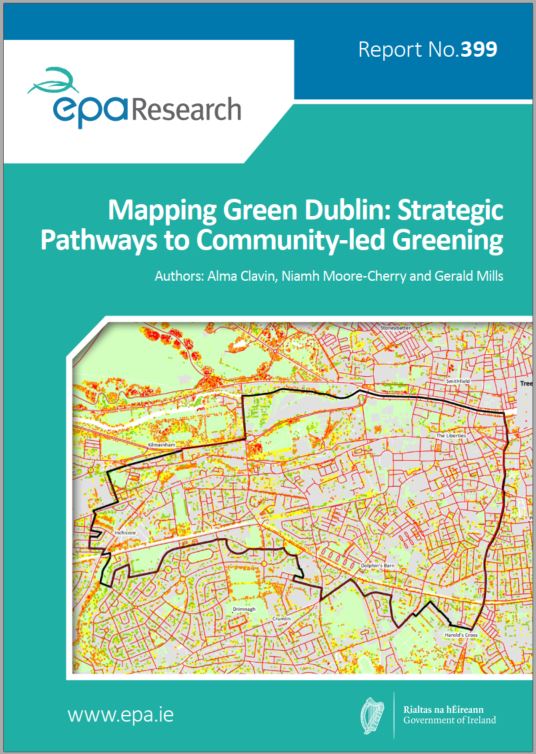
Authors: Alma Clavin, Niamh Moore-Cherry and Gerald Mills, December 2021
Year: 2021
Enhancing green infrastructure in densely populated centres is an important means of improving urban environments, with benefits for air and water quality, as well as biodiversity enhancement. The project Mapping Green Dublin examined the variable green cover in the Dublin City Council area. It has generated data on the city’s trees, identified those places with significant environmental deficiencies and worked with the local community to develop a greening strategy for the Dublin 8 area. Mapping Green Dublin has established a process for effective engagement with neighbourhoods that allows residents to be participants in the design of their own spaces.